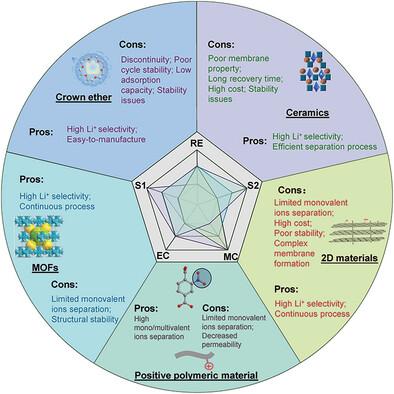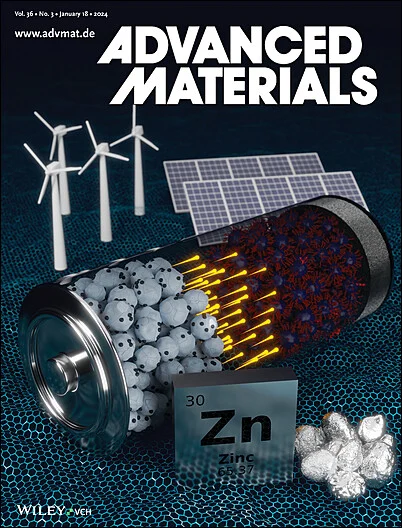Enhancing Membrane Materials for Efficient Li Recycling and Recovery
IF 27.4
1区 材料科学
Q1 CHEMISTRY, MULTIDISCIPLINARY
引用次数: 0
Abstract
Rapid uptake of lithium‐centric technology, e.g., electric vehicles and large‐scale energy storage, is increasing the demand for efficient technologies for lithium extraction from aqueous sources. Among various lithium‐extraction technologies, membrane processes hold great promise due to energy efficiency and flexible operation in a continuous process with potential commercial viability. However, membrane separators face challenges such as the extraction efficiency due to the limited selectivity toward lithium relative to other species. Low selectivity can be ascribed to the uncontrollable selective channels and inefficient exclusion functions. However, recent selectivity enhancements for other membrane applications, such as in gas separation and energy storage, suggest that this may also be possible for lithium extraction. This review article focuses on the innovations in the membrane chemistries based on rational design following separation principles and unveiling the theories behind enhanced selectivity. Furthermore, recent progress in membrane‐based lithium extraction technologies is summarized with the emphasis on inorganic, organic, and composite materials. The challenges and opportunities for developing the next generation of selective membranes for lithium recovery are also pointed out.

求助全文
约1分钟内获得全文
求助全文
来源期刊

Advanced Materials
工程技术-材料科学:综合
CiteScore
43.00
自引率
4.10%
发文量
2182
审稿时长
2 months
期刊介绍:
Advanced Materials, one of the world's most prestigious journals and the foundation of the Advanced portfolio, is the home of choice for best-in-class materials science for more than 30 years. Following this fast-growing and interdisciplinary field, we are considering and publishing the most important discoveries on any and all materials from materials scientists, chemists, physicists, engineers as well as health and life scientists and bringing you the latest results and trends in modern materials-related research every week.
 求助内容:
求助内容: 应助结果提醒方式:
应助结果提醒方式:


